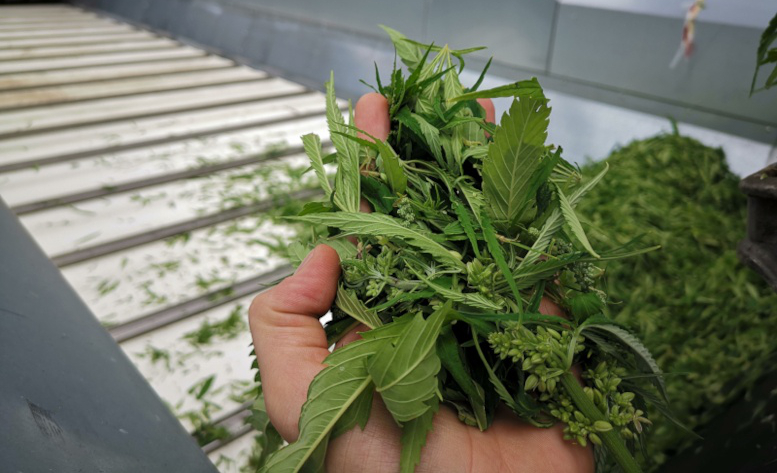France’s Council of State has formally lifted a ban on the sale of hemp flowers used to produce CBD and other cannabinoids, finalizing the overrule of a 2021 government decision.
The Council, which advises the government on legislation and serves as the supreme court on matters of administrative justice, ruled that the ban on the marketing of plant tops was “disproportionate” because the sale of CBD in leaf and flower form does not pose a risk to public health.
The decision is one in a string of developments down the road to making CBD legal in France, sure to develop into one of Europe’s biggest markets within the next few years.
The French Court of Cassation – the French high court – ruled in June 2021 that the sale of CBD does not “create a risk to public health” that could justify its ban. “The harmfulness of other molecules present in cannabis flowers and leaves, in particular CBD, has not been established,” the high court said, adding that CBD has been shown to have “relaxing properties and anticonvulsant effects, but does not have a psychotropic effect and does not cause dependence.”
Flower is freed
Nonetheless, when the government followed the court’s ruling and authorized the sale of products containing CBD in a December 2021 decree, it also banned the sale of hemp flowers in their raw form.
The Council of State temporarily suspended the decree in January 2022 under pressure from producers and farmers. The misguided decree is now definitively withdrawn, and will set France off on a market normalization process expected to take at least a couple years.
The Council also pushed back against fears of police agencies which have said the legalization of hemp leaves would make it difficult to distinguish between non-psychoactive hemp and marijuana, and therefore complicate law enforcement. That potential problem is manageable through rapid THC tests, the Council said.
‘Consecration’ of law
While France has been slow to take up CBD, it was, ironically, a French case that prompted the European Commission to change its assessment of CBD to declare the compound is not a narcotic, that CBD products should enjoy the same free movement of goods between and among EU countries as other legal products, and that CBD can be qualified as food. EU countries continue to develop national laws and regulations in line with the EC’s final word.
Charles Morel, president of the Union of CBD Professionals, estimated the sale of flowers generally represents 75% of turnover for roughly 2,000 specialized stores in France.
“With this decision, an entire sector is saved. We don’t understand why it was the target of a prohibitionist policy that was totally incoherent and out of touch with reality, and wanted to attack an insubstantial product,” Morel told the USAinformations. “This is the consecration of the rule of law.”
€300 million market
The French CBD sub-sector could bring a potential €300 million in annual turnover, according to a Senate group that pushed through a recent resolution intended to shape the overall hemp industry. Rulemaking is expected to advance early next year as a result of the resolution, under which the government is to set specific regulations for the CBD sector, declare hemp compatible with the EU’s Common Agriculture Policy, and develop a strategy for the industry.
Authorities still need to set the THC level for foods that contain CBD, which was not included in the original December 2021 decree. That decree fixed the THC level in extracts, but failed to set a THC benchmark for foods that contain the compound.
Two-year process
A first summary judgment on the Senate resolution is expected early this year, and the Council of State would then render a final opinion on the CBD framework within a few weeks. However, stakeholders have said that approval of France’s plan by the European Commission is not expected until the end of 2024 at the earliest.
French farmers have grown hemp primarily for cultivation seed, and fiber to turn out building materials and paper, all subsectors in which the French are Europe’s leaders. While the country is the third biggest hemp grower in the world and the biggest in the EU, current fields are just 22,000 hectares (54,000 acres).
UIVEC, an extracts trade group, has estimated that roughly 300 to 500 hectares of hemp, primarily on small plots, were grown for CBD-producing flowers in 2022.

